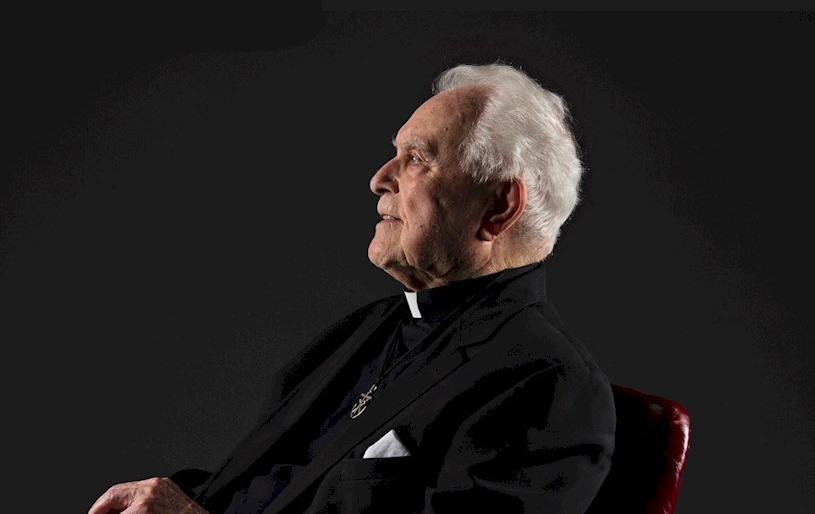Theodore M. Hesburgh (1917 – 2015)
The world lost a good man earlier this year in the person of Fr. Theodore M. Hesburgh. Fr. Hesburgh was a priest in the Congregation of the Holy Cross, but he was best known in his role as President of the University of Notre Dame from 1952-1987. Thirty-Five years is a long time to serve as a University President, particularly at one institution, and the Notre Dame that Hesburgh inherited was far different than the University from which he retired.
College presidencies are generally recognized as being pretty complicated positions. They require a significant base of knowledge in areas such as academic programming, finance, personnel, federal law, interpersonal and organization communication, politics, fundraising, strategic planning and crisis management. These positions also require equal amounts of informal knowledge; that is, the kind of knowledge or skills that we learn at the school of hard knocks: tenacity, grace, forgiveness, hope, confidence, and humility, to name a few. Successful presidencies usually reflect equal parts of the formal and informal.
By any measure, Fr. Hesburgh is recognized as one of the most influential leaders of the 20th century. He served the Church and the world in ways that will likely never again be replicated. He was a counselor and confidante to Presidents and Popes, leaders of industry and the religious. But, most importantly, he is best known for loving the students on his campus. As President, he understood that knowing another person by name, particularly a young person in their critical formative years, instilled confidence and a sense of belonging.
Near the end of his life, Hesburgh was asked what he would like to have written for his epithet. He responded, “Priest.”
Someone once said that if a person truly wants to find himself or herself, they can only do so by serving others. In his book, Incarnate Leadership: 5 Leadership Lessons from the Life of Jesus, Bill Robinson, himself an extraordinary former College President, offers a similar insight through none other than Albert Einstein: “Only a life lived for others is worth living.”
I never had the privilege of meeting Fr. Hesburgh and, like just about all of us, I’m pretty sure that he had detractors as well as supporters. That’s just life. That he wanted to be remembered as a priest as opposed to counselor to Presidents and Popes, or recipient of 150 honorary degrees or the Medal of Freedom suggests something of his character, the heart of which appears to have been servant-leadership.
Something transformative happens to organizations when leaders have a servant’s heart. These organizations tend to be highly competitive and, often, extremely successful and, yet, there is an attitude of caring and concern—some might even call it love—that permeates the culture.
Why does love matter in a competitive environment? Because colleagues who care about each other will normally climb any metaphorical mountain to ensure their organization’s continued success—and, because it’s just the right way to lead. Fr. Hesburgh wanted to be remembered as a priest—a servant leader. His service helped to transform Notre Dame into a premier University in the extremely competitive landscape of higher education not because they had more money and prestige than their competition, but because the culture that he facilitated on campus was qualitatively different.










